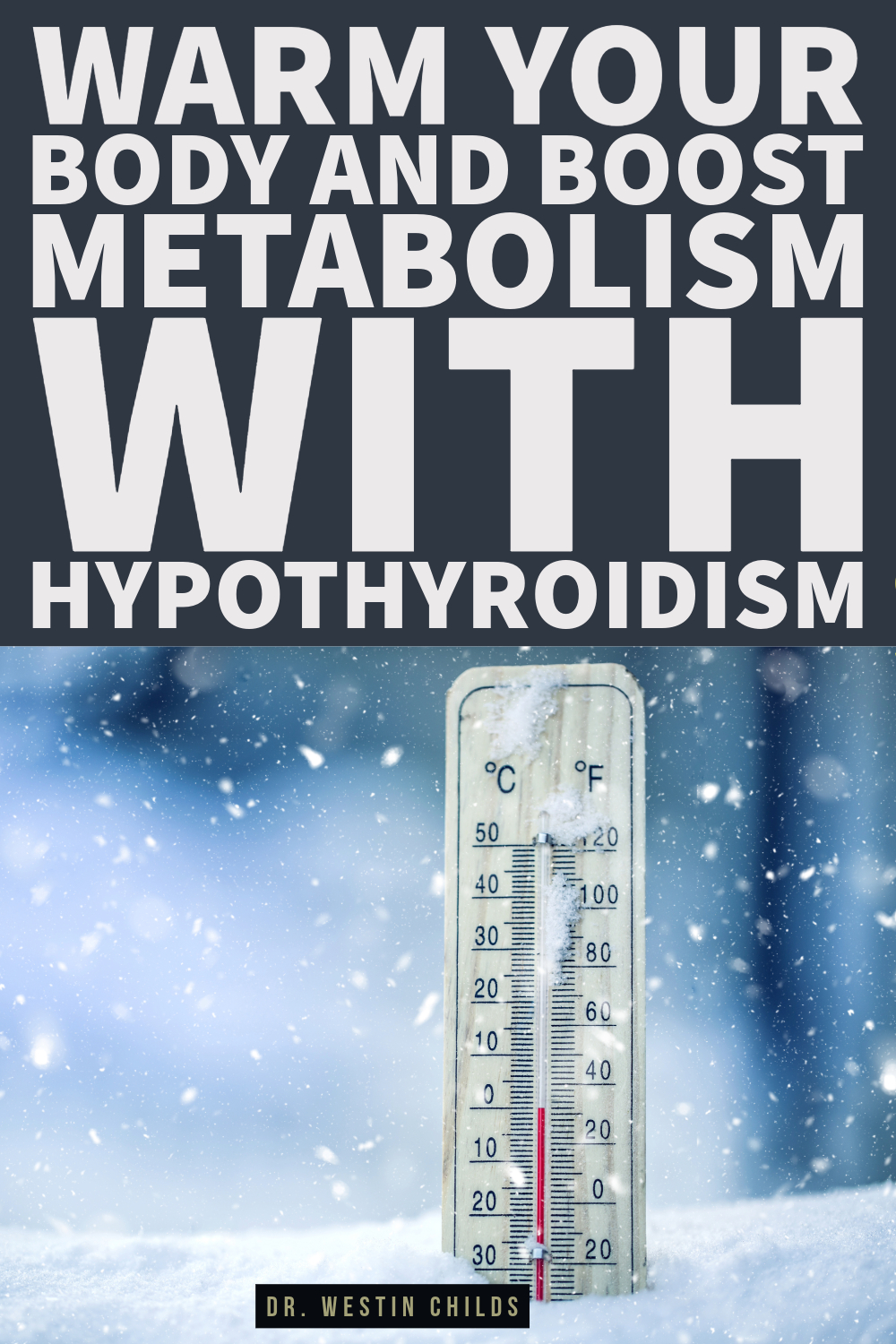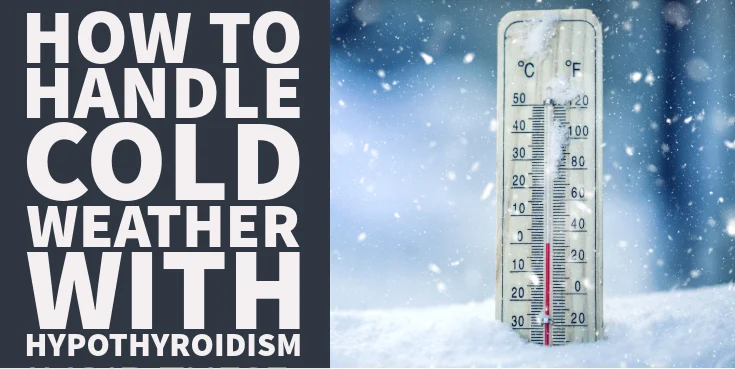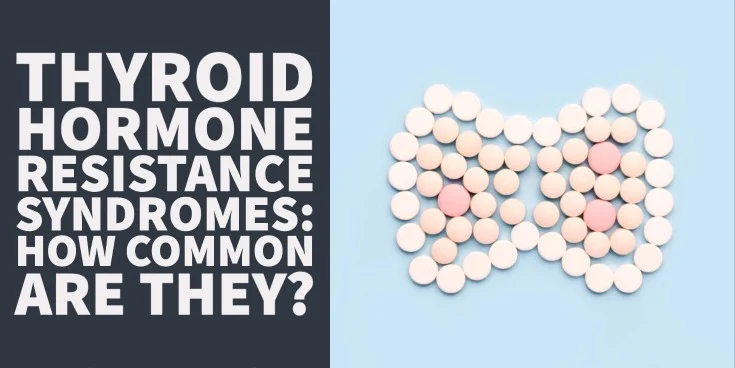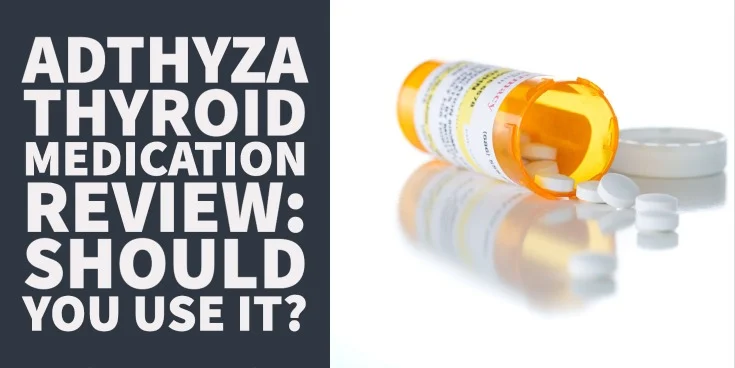Cold weather can be particularly challenging to deal with if you have low thyroid function but there are ways that you can handle it with ease.
In order to do this, though, you need to understand how colder temperatures, and the changes in the angle of the sun during winter, impact your thyroid.
Because not only does thyroid function vary hour to hour, day to day, but it also changes season to season.
Research has shown, for instance, that thyroid function increases during the summer and decreases during the winter (1).
But if you are aware that this happens, and if you understand why, you can prepare for it.
DOWNLOAD FREE RESOURCES
Foods to Avoid if you Have Thyroid Problems:
I’ve found that these 10 foods cause the most problems for thyroid patients. Learn which foods you should avoid if you have thyroid disease of any type.
The Complete List of Thyroid Lab tests:
The list includes optimal ranges, normal ranges, and the complete list of tests you need to diagnose and manage thyroid disease correctly!
How Winter (And Cold Weather) Impact Your Thyroid
During the winter months, here’s what happens to your thyroid:
- Low thyroid function decreases cold-induced thermogenesis which means your body can’t produce the heat it needs to keep up with the cold weather.
- As your thyroid struggles to produce thyroid hormone, your TSH will rise, and your free T3 and free T4 decrease.
- In order to preserve heat, your body shunts blood to your core which leaves your hands and feet with less blood flow and less warmth.
- Due to the axis of the Earth during winter, fewer UVB rays make it to the surface (2) which results in vitamin D deficiency and seasonal affective disorder.
The result is a predictable set of symptoms that just about every thyroid patient will experience during winter months:
- Cold intolerance
- Weight gain (more than the average person)
- And depression
Is all of this the inevitable reality that thyroid patients are forced to face when it’s cold outside?
Nope.
Because now that you know what you expect, you can take steps to prevent this cascade of problems from occurring.
I’ve split the ways to beat the cold into two groups:
First, we have the tips designed to help your thyroid transition from warmer months into the colder months and second, we have the more practical tips that will help your body create more heat on its own.
Let’s jump in.
#1. Get a Baseline TSH Before Winter Starts
If you’ve been following me for a while then you know I’m a huge proponent of getting more than just the TSH but, for purposes of winter, the TSH is really what you want to look at first.
The reason has to do with a concept called the hypothalamic-pituitary-axis set point (3) or HPA set point for short.
All this fancy phrase means is that there is a TSH at which your body will want to stay if you want to feel optimal and this level is unique and personal to your body.
The TSH set point that your body likes will be different from the next person so the only way to find it is to carefully keep track of it for you (while not paying attention to the influence of other thyroid patients).
This set point is important because we know that the TSH will increase during winter which is the precipitating factor in the cascade of negative events that you are trying to avoid.
So getting a baseline TSH is important because if you know that you’re best with a TSH of, let’s say, 1.0 uIU/ml, then you can make adjustments to your thyroid medication during winter to get back there.
The only way this baseline TSH works, though, is if you are actually feeling great before heading into winter.
You’ll know if your thyroid is optimized because your thyroid-related symptoms will be non-existent or at least 90% gone.
If your thyroid isn’t optimized, then spend some time reading this article which will help you get there.
If you feel like your TSH is an unreliable predictor of your thyroid status, which is definitely the case for some people, then you can move on to step #2.
#2. Consider Using Thermoegenic Thyroid Hormones (T2 and T3)
Some thyroid hormones have a more profound effect on heat generation than others due to their cellular activity.
T4, for instance, primarily serves as a reserve hormone for the creation of T3 so its heat-producing capacity is very limited.
It will really only help you produce heat insofar as your body can adequately create T3 from it.
But we know this is a problem for many people, so it can’t always be relied upon as a sole source of thyroid hormone.
While T4 doesn’t produce very much metabolic activity, there are two other thyroid hormones that can:
T3 and T2.
T3, also known as triiodothyronine, is the primary regulator of your metabolism and activator of thermogenesis through its uncoupling reactions in brown fat (4).
It also acts to produce heat by directly activating your sympathetic nervous system (your fight or flight response) which is why some people experience heart palpitations and anxiety with its use.
Similar to T3, though not to the same degree, T2 promotes the browning of white fat (5) which enhances thermogenesis and heat production.
In terms of raw power, T3 reigns supreme, but it’s also much more difficult to get as it requires a prescription medication from your doctor and most doctors are simply unfamiliar with it.
T2, on the other hand, is available as an over-the-counter supplement and can be safely added to any existing thyroid medication or taken on its own.

T2 is also the only thyroid hormone available in cream form which means it can be placed directly on the skin over fat providing unique topical benefits where it is applied.
If you are having a hard time regulating your body temperature with levothyroxine alone, you can add in these other thyroid hormones for more power.
Small doses of T3, as low as 5 mcg per day, will impact TSH, whereas you won’t see any changes to your TSH with doses less than 300 mcg per day of T2.
Keep this in mind if you decide to add either or both of these hormones to your existing thyroid hormone regimen.
#3. Optimize Your Vitamin D Status
Whatever you decide to do with your thyroid hormones, don’t forget the impact that your vitamin D status has on thyroid function.
Vitamin D appears to play a complex role in thyroid physiology where it’s been documented to do the following:
- Protect against thyroid autoimmunity (6)
- Protect against thyroid cancer (7)
- Help maintain a steady TSH
We don’t have the specifics of how or why vitamin D directly impacts TSH but we do know that it does.
For instance, one study showed that supplementation with vitamin D over the course of a year significantly decreased TSH and thyroid antibodies (8).
So preserving your vitamin D status is important as a thyroid patient and the winter months make this a herculean task.
Due to the axis of the Earth during winter, fewer UVB rays hit the surface which means less opportunity for sun-light-induced vitamin D creation.
The less sun you get, the lower your vitamin D will go, and, consequently, the higher your TSH will be.
You can easily combat this by just taking a thyroid support supplement that contains 2,000 to 5,000 IU per day of vitamin D.
Just make sure you increase your vitamin D intake during winter to compensate for less sun during the winter.
Practical Tips & Tricks
Optimizing your thyroid will definitely help increase your body temperature and make you more comfortable, but there are also some practical things you’ll want to do as well:
#1. Use Therapies That Increase Brown Adipose Tissue (Ice Baths)
It may seem counterintuitive to get yourself cold in order to make yourself warm, but it works.
Ice baths, or cold exposure in general, increase heat production by inducing shivering thermogenesis and through the activation of brown fat (9).
They also have the added benefit of increasing your tolerance to cold which can be helpful in hypothyroid patients who experience cold intolerance.
Spending 2 minutes in cold water under 60 degrees is enough to induce physiologic benefits.
#2. Use A Sauna
Regular sauna use is a no-brainer for thyroid patients, especially during the winter (but, really, they should be used all year round).
By heating your body up and pushing it out of its normal homeostatic baseline, it has to struggle to get back to a normal body temperature and retain normal cellular function.
The simple stress from heat activates heat shock proteins which strengthen your cells and are responsible for many of the documented benefits that regular sauna use (10) provides including:
- Better sleep
- Detoxification
- Decreased inflammation
- Reduced anxiety
- Better circulation
- And weight loss
When it comes to saunas, you have two options:
- FAR IR sauna which uses a combination of heat and light energy for a ‘heat from the inside out’ approach
- And a steam sauna which heats the air around you for a ‘heat from the outside’ approach
Both have benefits but if you have access to it, FAR IR sauna is the way to go.
Spending 30 minutes in one at a temperature of around 130 degrees is the best-case scenario but you can still get benefits with temperatures in the range of 110 to 115 degrees as well.
All you have to do is hop into the sauna and relax while your body heats up and those little heat shock proteins do their job.
#3. Consume Thermogenic Foods and Take Thermogenic Supplements
You can also impact heat production by simply changing the type of foods that you eat.
This effect, known as the thermic effect of food (11) (TEF), is the amount of energy required to digest and process the food that you put into your body.
And, by far, the foods that require the most energy to digest are proteins.
So if you want to bolster your metabolism and help your thyroid more easily produce heat, you can up your intake of protein.
As a patient with hypothyroidism, you’ll want to aim for a minimum of 100 grams of protein each day with an upper-range goal of 1 gram of protein per pound of your ideal body weight.
Compared to protein (12), fat requires the least amount of energy to break down (the TEF for protein is 20-30% and fat is 0-3%) so you’ll want to focus on lean sources of protein including:
- White fleshed fish
- Chicken
- Turkey
- Lean ground beef (with a ratio of 90/10 or better)
- Lean pork
You can also take supplements that induce thermogenesis, here are a few that fall into this list:
- Green tea extract (13)
- 3, 5 diiodo-l-thyronine
- Caffeine
- Glucomannan
- Yohimbine
- Carnitine
- Capsaicin (14)
- Cayenne pepper
#4. Low-intensity Weight Training And/Or Low-Intensity Cardiovascular Training
Another simple tool that not enough thyroid patients take advantage of is exercise.
The physiologic response to exercise is an increase in core body temperature (15) which can take several hours to get back to normal.
During this after-exercise period, your body continues to burn energy (making weight loss easier) and produce heat (supporting your thyroid).
If you really want to support thyroid function then certain exercises are better than others.
The best are those that promote the building of lean muscle mass such low low-intensity weight training.
Skeletal muscle is a large site of thyroid hormone activity so the more muscle mass you have, the more activation of thyroid hormone you’ll experience.
But you can also get physiologic benefits from zone-2 training which is exercise that keeps your heart rate at around 60% of maximum.
Recap
On top of these more nuanced treatments, don’t forget the basics:
- Wear layers
- Wear socks to bed
- Get a personal heater
- Eat warmer foods
- Etc. etc.
These more basic treatments will temporarily keep you comfortable but if you want the more lasting warmth and heat, you’ll need to focus more on your thyroid, and the treatments we discussed will do just that.
Scientific References
#1. ncbi.nlm.nih.gov/pmc/articles/PMC9070835/
#2. ncbi.nlm.nih.gov/pmc/articles/PMC3897598/
#3. ncbi.nlm.nih.gov/pmc/articles/PMC4237899/
#4. ncbi.nlm.nih.gov/pmc/articles/PMC6287687/
#5. ncbi.nlm.nih.gov/pmc/articles/PMC6468521/
#6. ncbi.nlm.nih.gov/pmc/articles/PMC9966459/
#7. ncbi.nlm.nih.gov/pmc/articles/PMC9268358/
#8. ncbi.nlm.nih.gov/pmc/articles/PMC9964959/
#9. ncbi.nlm.nih.gov/pmc/articles/PMC9518606/
#10. ncbi.nlm.nih.gov/pmc/articles/PMC7908414/
#11. pubmed.ncbi.nlm.nih.gov/31021710/
#12. ncbi.nlm.nih.gov/pmc/articles/PMC3873760/
#13. pubmed.ncbi.nlm.nih.gov/17201629/
#14. ncbi.nlm.nih.gov/pmc/articles/PMC5426284/
#15. ncbi.nlm.nih.gov/books/NBK236240/








